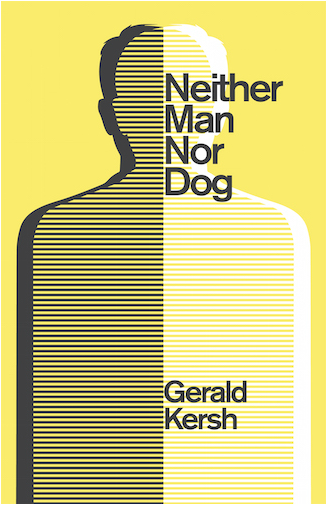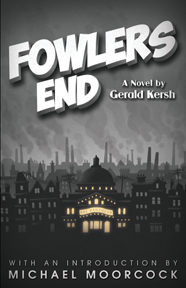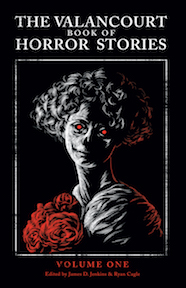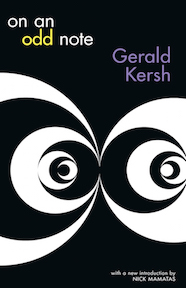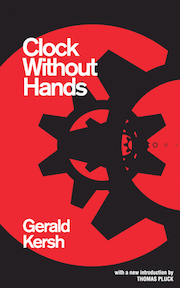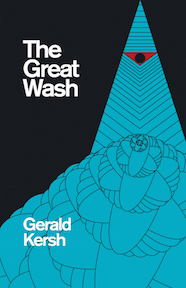|
BOOK DETAILS
Trade paper ISBN-13: 978-1941147726 List Price: $17.99 U.S. Pages: 208 Published: 2015 |
Neither Man Nor Dog (1946)
Gerald Kersh Book Description
This collection of 37 stories by a master of the form features tales that are sometimes funny, sometimes violent, and sometimes weird and nightmarish: in short, it is quintessential Gerald Kersh. Kersh (1911-1968) published more than thirty books, including the noir classic Night and the City (1938) and Fowlers End (1957), which Anthony Burgess called "one of the great comic novels of the century," as well as hundreds of short stories which were once ubiquitous in British and American magazines. But though he has been championed by Angela Carter, Harlan Ellison, Ian Fleming, Michael Moorcock and others, Kersh has undeservedly fallen into neglect since his death. This is the first-ever reprint of Neither Man Nor Dog (1946), one of the author’s scarcest volumes. Kersh’s novels Fowlers End and The Great Wash and the short story collections Nightshade and Damnations, On an Odd Note, and Clock Without Hands are also available from Valancourt. |
reviews
“[B]rutal but highly talented ... at least one [story] is ... a little masterpiece, and all of them possess the virtue of being highly readable.” – J.D. Beresford, The Guardian
“[E]xplosive with violence . . . The best of them are very good. The unfailing fertility of his imagination is indeed to be wondered at . . . For entertainment of a strong kind, Mr. Kersh would be hard to beat.” – Times Literary Supplement
“Kersh tells a story, as such, rather better than anybody else.” – Pamela Hansford Johnson, Daily Telegraph
“[E]xplosive with violence . . . The best of them are very good. The unfailing fertility of his imagination is indeed to be wondered at . . . For entertainment of a strong kind, Mr. Kersh would be hard to beat.” – Times Literary Supplement
“Kersh tells a story, as such, rather better than anybody else.” – Pamela Hansford Johnson, Daily Telegraph
ALSO AVAILABLE THROUGH ONLINE RETAILERS
MORE TITLES BY THIS AUTHOR
VIEW COMPLETE LIST OF TITLES HERE
AUTHOR BIOGRAPHY
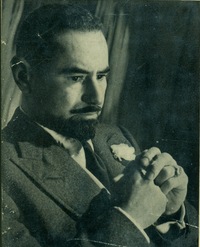
Gerald Kersh was born in Teddington-on-Thames, near London, in 1911. He left school and took on a series of jobs—salesman, baker, fish-and-chips cook, nightclub bouncer, freelance newspaper reporter—and at the same time was writing his first two novels. His career began inauspiciously with the release of his first novel, Jews Without Jehovah, published when Kersh was 25: the book was withdrawn after only 80 copies were sold when Kersh’s relatives brought a libel suit against him and his publisher. He gained notice with his third novel, Night and the City (1938) and for the next thirty years published numerous novels and short story collections, including the novel Fowlers End (1957), which some critics, including Harlan Ellison, believe to be his best.
Kersh fought in the Second World War as a member of the Coldstream Guards before being discharged in 1943 after having both his legs broken in a bombing raid. He traveled widely before moving to the United States and becoming an American citizen, because “the Welfare State and confiscatory taxation make it impossible to work over there, if you’re a writer.”
Kersh was a larger than life figure, a big, heavy-set man with piercing black eyes and a fierce black beard, which led him to describe himself proudly as “villainous-looking.” His obituary recounts some of his eccentricities, such as tearing telephone books in two, uncapping beer bottles with his fingernails, bending dimes with his teeth, and ordering strange meals, like “anchovies and figs doused in brandy” for breakfast. Kersh lived the last several years of his life in the mountain community of Cragsmoor, in New York, and died at age 57 in 1968 of cancer of the throat.
Kersh fought in the Second World War as a member of the Coldstream Guards before being discharged in 1943 after having both his legs broken in a bombing raid. He traveled widely before moving to the United States and becoming an American citizen, because “the Welfare State and confiscatory taxation make it impossible to work over there, if you’re a writer.”
Kersh was a larger than life figure, a big, heavy-set man with piercing black eyes and a fierce black beard, which led him to describe himself proudly as “villainous-looking.” His obituary recounts some of his eccentricities, such as tearing telephone books in two, uncapping beer bottles with his fingernails, bending dimes with his teeth, and ordering strange meals, like “anchovies and figs doused in brandy” for breakfast. Kersh lived the last several years of his life in the mountain community of Cragsmoor, in New York, and died at age 57 in 1968 of cancer of the throat.

